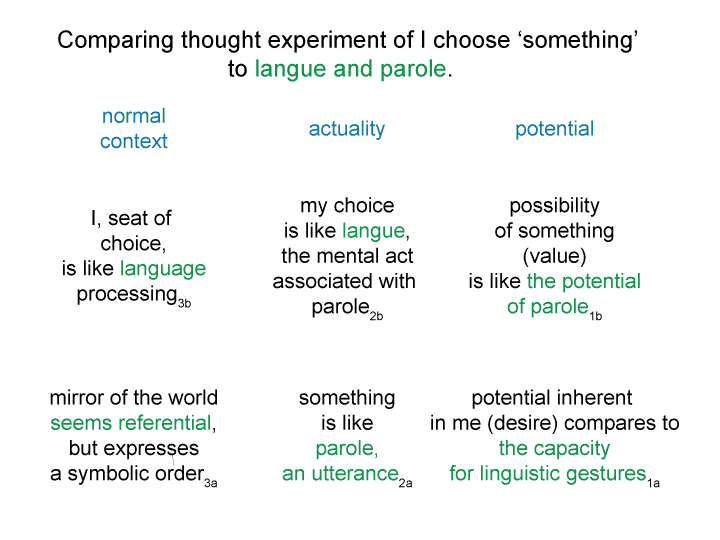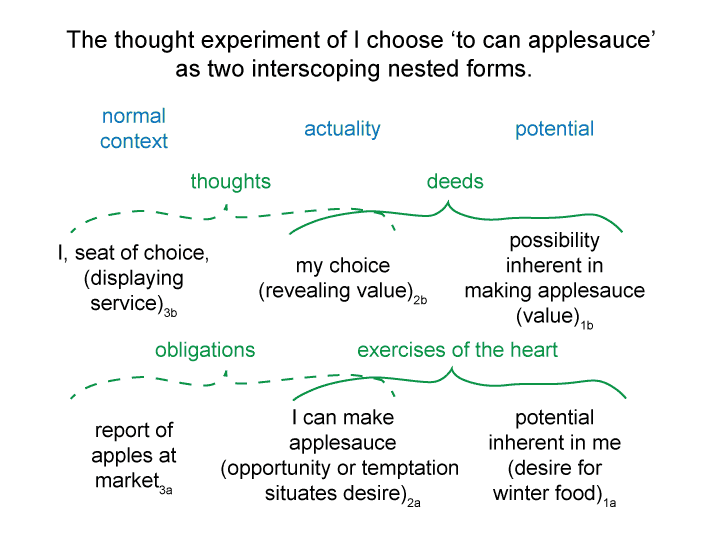Man and Sin by Piet Schoonenberg (1964) 2.3 JG
[For hand talk, a system of gesturing and seeing3 brought parole2a into relation with the potential of a finite number of different habitual manual brachial gestures1a.
The mirror of the world3a compares to the system3a in a system3a of differences1a.
A thought experiment that everyone in the group is participating in3a acts like gesturing and seeing3a.
Similarly, the potential inherent in me1a parallels the potential of a set of finite and habitual different features (comparable to the manual brachial gestures in hand talk)1a.
Something2a compares to parole2a, the utterance.]
Man and Sin by Piet Schoonenberg (1964) 2.3 JF
[Now, I want to compare something2a to parole2a.
Parole2a is the actuality in the content level of the system of differences of language.
The nested form is:
A system…3a( parole2a( …of differences1a))]
Man and Sin by Piet Schoonenberg (1964) 2.3 JE
Summary of text [comment] page 83
[In virtue, I take my responsibilities and freedom for granted.
My responsibility corresponds to mirror of the world3a(something2a(___1a)).
My freedom corresponds to __3a( something2a( potentials of me1a)).
In sin, I take my words and my bondage for granted.]
Man and Sin by Piet Schoonenberg (1964) 2.3 JB
[My choice2b can validate the expectations in the report3a.
My friend’s report3a expects to arouse my desire1a.
If I make a choice2b, I validate the thought experiment3a, even if it turns out that there are no good apples at the market.
Then I do2b something foolish.
I purchase undesirable apples at a high price.]
Man and Sin by Piet Schoonenberg (1964) 2.3 JA
Summary of text [comment] page 83
[A report of apples at the market3a acts as a mirror in which I see I can make applesauce and stock up for the winter2a in the potentials inherent in me1a.
If I focus on the opportunity for making applesauce2a, then I address my desire1a.
If I ask myself, “Is this what I value1b?”, then I question my desire1a.]
Man and Sin by Piet Schoonenberg (1964) 2.3 IZ
[If I am contemplative, I do not seamlessly fold the content-level into the situation-level nested form.
That is sensible thinking.
The contemplative is aware of the dangers of the interscope.]


